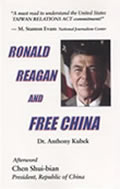Other
DeWeese
Articles:
UN Wants Control of The Seas With US Senate's Help
Total Surveillance Equals Total Tyranny
Loosing Your Liberty in The Name of Fighting Terrorism
The Faith-Based Initiative is a Trojan Horse
THE
PRINCIPLES OF FREEDOM vs. PUBLIC/PRIVATE PARTNERSHIPS
PART 1
By
Tom DeWeese
August 16, 2007
NewsWithViews.com
"Freedom." We use that word a lot. Do we all really know what that word means? It's used in so many different ways. Do we understand how it is attained?
Most importantly, do we understand how it is used by some to actually take freedom away?
Why do some who profess to advocate freedom actually accept policies, which diminish freedom and call it "restoring the Republic?"
Simply put, freedom is the ability to act without hindrance or restraint. Freedom is owning your life, your actions, your labor.
We say we support the "principles" of freedom. But what are those principles and where did they come from?
First of all, we must understand principles are not legislated or invented. Principles are discovered. Someone doesn't just come up with an idea and start to sell it as a principle. A principle exists and you are subject to it, whether or not you know it.
For example, for centuries men were ignorant of the laws of physics but they were subject to them nonetheless. Man couldn't fly or fill two objects in the same space, no matter how hard he tried because the laws (or principles) of physics are fact, whether known or unknown.
The same is true with the principles of freedom. The basic principles of freedom are consistent with man's nature and that's why they work. When the principles of freedom are recognized and adhered to, there is prosperity, justice and happiness.
When the principles have been ignored or rejected, men have suffered poverty, stagnation and political tyranny.
So to obtain freedom it's vital that we know what the principles are. There are three, actually. Individualism, private property, and free enterprise. They are all necessary for freedom to exist. Leave just one out, and freedom is eroded.
Individualism - your personal choices - the ability to pursue your own rational self-interest. Choices like the religion you choose; the size home you build; the car you drive; the kind of spouse you select. In short, individualism is fulfilling a life of one's own.
Private property. Well this conference was built on the concept of the right to own and control private property. Your own body is the most important property you will ever own. The idea that someone else can control that is absurd, but there are many who seek to do so.
So private property is not just land. It is your thoughts. Your possessions and the fruits of your labor. Without the right to own and dispose of the products of ones own life, the individual is dependent upon the State (or someone) for his very existence.
So, it is obvious that one can't be individualistic without the ability to own and control private property.
It can be argued that one can have no other rights without property rights. George Washington said, "private property and freedom are inseparable." Property Rights activist and ranger, Wayne Hage said, "Either you have the right to own property or you are property."
And that brings us to the third principle of freedom - free enterprise. Free markets. Capitalism. The process whereby free men buy and sell and trade the products of their own lives free from interference.
These are the three principles of freedom and these are what we are fighting for.
Reinventing Government and "Free Trade"
But today, we live in a new world with new terms and policies. Free trade. Open borders. Partnerships. Global markets. Emerging economies. Developing nations. They tell us we're breaking down barriers. We're providing opportunities. We're building FREEDOM around the globe.
To listen to the excited hoopla, it seems man has never been closer to universal freedom with all of its benefits of wealth and opportunity to the masses of the earth. Gone are the conflicts caused by suspicion, jealousy and nationalism.
Here we are, brothers and sisters in a brave new world as our leaders join hands and purse strings to plan our future without pain or fear or hunger. Oh my! I get all ginchy just thinking about it!
But before we get too excited, first a little history lesson on where some of these policies came from and how they actually work.
During the first years of the Clinton Administration in the early 1990s, there was much fanfare about a new policy to "reinvent government." It was sold as a way to make government more efficient and less costly. It would, said its proponents, "bring business technologies to public service."
Pro-business, anti-big-government conservatives and libertarians were intrigued. The backbone of the plan was a call for "public/private partnerships." Now that sounded like their kind of program.
Government, they said, would finally tap the tremendous power of the entrepreneurial process and the force of the free market into making government more effective and efficient. It sounded so revolutionary and so American.
Today that "reinvention" has revealed itself to be the policy known as Sustainable Development, which is nothing more than a plan for a top-down managed society. Sustainable Development policy includes population control; development control; technology control; resource control; and in a great sense, thought control.
Sustainable Development is not freedom. Not one of the three principles apply. There is no individuality as it advocates group policies; there is no private property under Sustainable Development - period. And there is no free enterprise as markets and supplies are tightly controlled by the hand of government.
[See the DVD: "Liberty or Sustainable Development"]
Yet, incredibly, much of the Sustainable policy has been embraced by the "free-trade" movement, which advocates open borders, free trade zones, and one-size fits all regulations, currencies, and the use of public/private partnerships. And many of the biggest proponents of the policy are conservative and libertarian think tanks.
NAFTA
The North American Free Trade Agreement (NAFTA) was one of the first of the "free trade" policies to use the concept of public/private partnerships as a major tool to drive policy.
The program was sold simply as a means to expand markets for American industry and agriculture beyond U.S. borders into Canada and Mexico, thereby offering American business and workers "better jobs, better wages and more exports."
However, NAFTA is not unencumbered trade. It represents truckloads of regulations. And there is no question that NAFTA regulations and guidelines are creating great change in the economic order of our nation.
NAFTA comes with its own tribunal overseers; its own courts; and its own set of rules - all of which can, in fact, override laws passed by local, state and federal governments.
Such a policy is not "free trade," rather it is a new government structure - reinvented, indeed. Here is how Henry Kissinger described NAFTA in July, 1993: "It will represent the most creative step toward a new world order taken by any group of countries since the end of the Cold War, and the first step toward an even larger vision of a free-trade zone for the entire Western Hemisphere. [NAFTA] is not a conventional trade agreement, but the architecture of a new international system."
NAFTA, under close examination appears to be little more than a redistribution of the wealth scheme. Profiting from it are a few select corporations, which get wealthy in their elite partnerships with government while American jobs, industry and wealth get redistributed to other nations.
Since 1994, under NAFTA, the U.S. trade deficit has soared and now approaches $1 trillion per year. The U.S. has lost some 1.5 million jobs and real wages in the U.S. have fallen significantly.
However, the concept continues to be highly touted by "free traders" as a success. Thirteen years after its inception there are now more calls for similar programs to cover South America, Central America, Africa and Asia. The Security and Prosperity Partnership (SPP) is designed to further enhance and strengthen the NAFTA concept over North America.
Public/Private Partnerships = Government-Sanctioned Monopolies
It is little understood by the general public how public/private partnerships can be used, not as a way to diminish the size of government, but in fact, to increase government's power.
That's because no one ever comes forward and tells the general public the entire plan for something as vast as the Security and Prosperity Partnership. No one ever calls for a debate or a vote to implement the plan with public approval.
Instead, it's done incrementally, a piece at a time, in an easy to disguise program here - a suggestion there. There are few debates or discussions. Even elected officials rarely know the true agenda they are helping to put in place.
Slowly, the whole comes together. By the time people realize the truth, it's already in place. Policy is set.
And Public/Private Partnerships are becoming the fastest growing process to impose such policy. State legislatures across the nation are passing legislation, which calls for the implementation of PPPs.
Beware. These bonds between government and private international corporations are a double-edged sword. They come armed with government's power to tax, the government's power to enforce policy and the government's power to enforce eminent domain.
At the same time, the private corporations use their wealth and extensive advertising budgets to entrench the policy into our national conscience. Cute little jingles or emotional commercials can be very useful tools to sell a government program.
Further, participating corporations can control the types of products offered on the market. Witness the drive for solar and wind power, even though the technology doesn't exist for these alternative energies to actually make a difference.
Yet, the corporations, in partnership with government to impose these polices, have convinced the American public that this is the future of energy. Rest assured that if any one of these companies had to sell such products on the free market controlled by consumers, there would be very little talk about them.
But, today, an unworkable idea is making big bucks, not on the open market, but in a controlled economy for a select few like British Petroleum because of their partnerships with government.
Public/private partnerships can be used by international corporations to get a leg up on their competition by entering into contracts with government to obtain favors such as tax breaks and store locations not available to their competition, thereby creating an elite class of "connected" businesses.
A private developer, which has entered into a Public/Private Partnership with local government, for example, can now obtain the power of eminent domain to build on land not open to its competitors.
The fact is, current use of eminent domain by local communities in partnership with private developers simply considers all property to be the common domain of the State, to be used as it sees fit for some undefined common good.
The government gains the higher taxes created by the new development. The developer gets the revenue from the work. The immediate losers, of course, are the property owners. But other citizens are losers too. Communities lose control of their infrastructure. Voters lose control of their government.
Using PPPs, power companies can obtain rights of way over private land, as is currently happening in Virginia where Dominion Power plans massive power towers over private property - against the strong objections of the property owners.
Private companies are now systematically buying up water treatment plants in communities across the nation, in effect, gaining control of the water supply. And they are buying control of the nation's highway systems through PPPs with state departments of transportation.
Because of a public/private partnership, one million Texans are about to lose their land for the Trans Texas Corridor, a highway that couldn't be built without the power of eminent domain.
Of course, it's not just American companies entering into PPPs with our government. Foreign companies are being met with open arms by local, state and federal officials who see a way to use private corporations and their massive bank accounts to fund projects.
As the Associated Press reported July 15, 2006, "On a single day in June (2006) an Australian-Spanish partnership paid $3.6 billion to lease the Indiana Toll Road. An Australian company bought a 99 year lease on Virginia's Pocahontas Parkway, and Texas officials decided to let a Spanish-American partnership build and run a toll road for 50 years."
In fact, that Spanish-American partnership in Texas and its lease with the Texas Department of Transportation to build and run the Trans Texas Corridor contains a "no-compete" clause which prohibits anyone, including the Texas government from building new highways or expanding exiting ones which might run in competition with the TCC.
That is not free enterprise. And it's not protecting the second principle of freedom - private property.
With inside information from its own Public/Private Partnership, Kansas City Southern Railroad (KCSR) has been able to grow overnight from a two-bit belt around Kansas City to controlling a 2,600-mile artery from Lazaro Cardenas to Kansas City, straight up the Trans Texas Corridor. KCSR has obtained the rail rights up the corridor. It is now a government-sanctioned monopoly.
Protected from competition, the railroad will set the costs and the shipping rules. And it will get very rich, no matter the quality of service. All because of whom its owner knows. Ayn Rand called it the power of pull. That is not free enterprise.
At an April, 2007 meeting in Calgary, Canada, as part of the Security and Prosperity Partnership, government officials, business leaders and academics met to discuss redistributing Canada's water to Mexico and the U.S. Southwest.
Canada has water, lots of it, and the public/private partnerships of the SPP are swarming on it like locusts as they seek to drain it out of Canada's rivers and lakes and ship it to potential profit centers south of the Canadian border.
The Trans Texas Corridor will provide water pipelines for the shipping and PPPs will buy up the rights and dispose of the water as they see fit.
Canadians are suddenly feeling the raw power of the lethal combination of government and private industry as they dictate policy. The people of Canada now understand that they will have little say in the matter.
Private companies operating in the free market lack one thing government has - the power of coercion. That's a good thing. Imagine if Hershey's Chocolate had the power to stop you from buying Mars candy, of course telling you it was for your good health.
The free market operates with you making the decisions based on personal choice. Under Public/Private Partnerships the choices are decided for you in meetings behind closed doors.
How many times now are we seeing free choices taken away in the name of some government policy?
One example of PPPs using government partnerships to take away personal choice is the pharmaceutical companies using the power of the FDA to regulate and remove availability of natural supplements from the open market.
Meanwhile, private companies that are not part of a PPP are unable to compete with those who are. They are shut out of competition from the establishment of economic development zones, which provide the chosen elite with reduced real estate taxes and financial aid.
Companies, which find themselves outside of the elite status of the PPP, suddenly run into regulatory difficulties to get their own projects completed. It's not just a coincidence?
All of these things are happening through agreements between certain industries and government.
PPPs are one of the reasons many people find they can no longer fight city hall. The private companies gain the power of government to do as they please - and the governments earn the independence of the companies, no longer needing to answer to voters. It's the perfect partnership. But it's not freedom.
Such a process allows the private companies to be little more than government-sanctioned monopolies, answerable to no one. Their power is awesome and near absolute. Some call such policy corporatism. Another term would be corporate fascism.
What public/private partnerships are not, however, is capitalism or free enterprise, though it may have some of the trappings of such. The marketplace is still there. Its laws have not been repealed. But ultimately, corporatism does not trust the marketplace to do what the elites want.
|
Subscribe to the NewsWithViews Daily News Alerts! |
Thus the alignment of corporations and government is done at the expense of ordinary people - the exact opposite of free markets controlled by consumers. I'll say it again it is not free enterprise. It's not "free trade." For part two click below.
Click
here for part -----> 2,
� 2007 Tom DeWeese - All Rights Reserved
Sign Up For Free E-Mail Alerts
E-Mails are used strictly for NWVs alerts, not for sale
Tom DeWeese is president of the American Policy
Center and Editor of The DeWeese Report , 70 Main Street, Suite 23, Warrenton
Virginia.
(540) 342-8911
E-Mail: apcmail@americanpolicy.org
Website: www.americanpolicy.org
What public/private partnerships are not, however, is capitalism or free enterprise, though it may have some of the trappings of such. The marketplace is still there. Its laws have not been repealed. But ultimately, corporatism does not trust the marketplace to do what the elites want.













